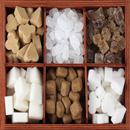 If you have recently decided to follow a weight loss regimen, it is important that you understand which food items can be included in your daily diets and which ones should be avoided. It appears that natural weight loss is the safest method for shedding those pounds. Everybody knows that certain beverages and drinks that contain high amounts of sugar should be avoided. Health reports have identified sugary drinks as the major cause of obesity, and these cases have been continually increasing in the last 30 years. These drinks have also been associated with the rising incidence of diabetes and hypertension. Physicians would therefore often recommend to their patients to skip these drinks in order to achieve weight loss. These patients eventually show some natural weight loss, but are there better and safer ways to lose weight?
If you have recently decided to follow a weight loss regimen, it is important that you understand which food items can be included in your daily diets and which ones should be avoided. It appears that natural weight loss is the safest method for shedding those pounds. Everybody knows that certain beverages and drinks that contain high amounts of sugar should be avoided. Health reports have identified sugary drinks as the major cause of obesity, and these cases have been continually increasing in the last 30 years. These drinks have also been associated with the rising incidence of diabetes and hypertension. Physicians would therefore often recommend to their patients to skip these drinks in order to achieve weight loss. These patients eventually show some natural weight loss, but are there better and safer ways to lose weight?
The American Heart Association earlier released a statement regarding the association between the amount of dietary sugar consumed by an individual on a daily basis and cardiovascular disease, weight loss, and obesity. This statement identified not only beverages and drinks as the main sources of dietary sugar, but also processed foods. High sugar intake in daily diets also destroys the possibility of natural weight loss and increases the chances of developing additional medical disorders such as diabetes and obesity.
A recent article in the European Journal of Clinical Nutrition describes an international scheme for food labels, providing consumers information on the components of commercial food items as a guide for healthy living and weight loss. The labeling scheme requires that the amount of added sugar and fatty acids present in each serving or gram of the food item be printed in the packaging. Several countries have now adapted this international labeling scheme, with the intention of promoting health and weight loss. Previous labeling protocols only require the disclosure of information on calories, fats, sugar, and vitamins, thus leaving the consumer with no information on whether the product is advantageous for natural weight loss. However, sugar and added sugar are totally different components, with the added sugar usually not included in the old labeling format.
One remarkable fact put forward by this article concerns the amount of added sugar present in processed food items. According to the report, manufacturers often manipulate the amount of added sugar, without any concern on its effect on daily diets and weight loss. These companies thus focus on making their products tastier to consumers, regardless of its negative effects on natural weight loss and nutrient content for daily diets. In addition, the report also describes that the added sugar in processed foods are low in nutrients, yet high in energy, components that are not helpful for an individual maintaining healthy daily diets or targeting weight loss. A person who consumes a substantial amount of cereal would thus think that these diets are beneficial for weight loss but in truth, he or she is consuming approximately 2.5 grams of added sugar in every 100-gram serving of cereal. In addition, this amount is greater than the added sugar present in beverages and soft drinks. Breakfast cereal products, which are more compact in size, contain around 20 grams of added sugar per 100-gram serving. Bread products with toppings were reported to contain almost 30 grams of added sugar per 100-gram serving.
Several products in the market should thus be well scrutinized in terms of added sugar content, especially when one is considering ways of achieving natural weight loss. Its use as a substitute for homemade meals will definitely be an ineffective measure for natural weight loss because it contains more added sugar than fruit juices and canned soda. For natural weight loss, the best option is thus to consume fruits, nuts, and vegetables, which are high in fiber and protein.
The international labeling scheme employs specific criteria that will classify each commercial food item in terms of health effects, including weight loss and contribution to the daily diets. Furthermore, the criteria will also examine whether an alternative product exists for this particular food item and if this additional product is more beneficial for natural weight loss. Using this decision-making process, consumers are given the appropriate information that could influence their food choices and diets. As for those who are bent toward natural weight loss, the new international labeling scheme can assist in monitoring sugar and fatty acid intake in daily diets.
Advertisement
